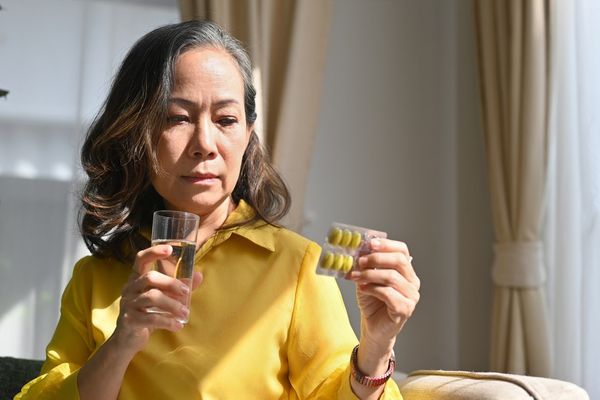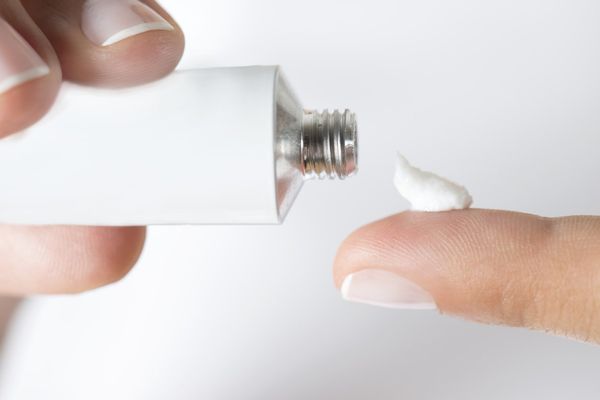All women will go through menopause, but not every woman experiences it the same way. We spoke with Laurie Jeffers, DNP, co-director of NYU Langone Health’s Center for Midlife Health and Menopause and member of HealthyWomen’s Women’s Health Advisory Council, and asked her what, exactly, we can expect before, during and after menopause.
Menopause has three phases. The first phase, perimenopause, is the time leading up to menopause when your periods become irregular. It can begin up to 10 years before your periods stop. Menopause refers to the phase that women reach when they haven’t had their period for a full 12 months, and this generally happens around ages 51-52. The rest of your life is spent in the final phase: postmenopause. The symptoms that span these phases are different for each woman and can affect many parts of the body.
“Symptoms appear to have nothing in common, but they have estrogen in common. Every cell in the body responds to the rise and fall of estrogen,” Jeffers said.
Jeffers shared the top 10 symptoms of menopause and noted that they can all be managed or treated. If you have any of these signs, she recommends finding a healthcare provider (HCP) who specializes in menopause treatment through resources such as the North American Menopause Society.
Top 10 symptoms of menopause
- Hot flashes and night sweats. Up to 8 in 10 women experience hot flashes and night sweats during perimenopause. Perimenopause is the time, usually in your 40s, when you start experiencing hormonal changes leading up to menopause. This stage of life can last up to 10 years. HCPs sometimes call hot flashes and night sweats “vasomotor symptoms (VMS),” and they’re caused by swings in estrogen levels. VMS can also cause trouble sleeping, which is another side effect of menopause.
- Breast tenderness. Sore breasts generally go away after perimenopause, when estrogen levels reach a low level and stay there. Some people may have had breast tenderness during pregnancy as well, and it has the same root cause: roller-coaster surges and drops in estrogen levels.
- Heavier, unpredictable periods. Your periods may increase in flow and become hard to predict before they stop forever. Once perimenopause ends, usually around age 51 or 52 for most women, so will your periods.
- Changes in mood. Women report mood changes in perimenopause. Often, these changes remind them of PMS. Some women experience mood disorders, such as depression or anxiety, after menopause.
- Sleep problems. Even without hot flashes and night sweats, changing estrogen levels can interfere with your natural sleep patterns. Sleep problems can also contribute to mood disorders and mood changes, and they also may be at least partially to blame for the memory problems some women experience.
- Migraine pattern change. Changing estrogen levels can trigger migraine attacks in the period leading up to menopause and afterward. Conversely, if you suffered from migraine attacks before you began perimenopause, they might end after menopause.
- Aches and pains. Estrogen loss can also cause joint pain. The pain can happen all over the body and tends to appear after menopause.
- Genitourinary Syndrome of Menopause (GSM). GSM is sometimes known as vaginal atrophy, and it tends to slowly appear a few years after menopause. It causes vaginal dryness, bladder issues, and changes in sexual desire. It’s very common, and it can and should be treated. Without treatment it will continue to get worse throughout the postmenopausal years.
- Bone loss. The silent symptoms of estrogen loss start to build in the years after menopause. Bone loss, or osteoporosis, can lead to fractures. Fractures in women over 50 can be debilitating. So it’s important to take steps to prevent bone loss. When recommended, get DEXA scans to measure your bone density.
- Increased heart disease risk. Even if you have no obvious symptoms, your risk for heart disease increases after menopause. It’s important to get regular checkups, eat a healthy diet, exercise regularly and keep an eye on cholesterol levels in the postmenopausal years.
The important thing to remember, according to Jeffers, is that symptoms are treatable, and menopause can provide a valuable opportunity to take stock of your overall health.
“You can emerge on the other side of menopause healthier than you were before,” Jeffers said.
This resource was created with support from Alora.
- The Surprising Signs of Perimenopause - HealthyWomen ›
- Signs of Early Menopause - HealthyWomen ›
- From Hot Flashes to Night Sweats, a Rundown of Vasomotor Symptoms During Menopause - HealthyWomen ›
- Is It Menopause or Something Else? - HealthyWomen ›
- Managing Menopausal Symptoms - HealthyWomen ›
- What No One Tells You About Menopause - HealthyWomen ›
- What Is VMS? Hot Flashes and Night Sweats. - HealthyWomen ›
- Tips for Reducing Vasomotor Symptoms During Menopause - HealthyWomen ›
- Perimenopause Age & Heart Health - HealthyWomen ›
- Perimenopause Can Be Terrible, but It Will Pass - HealthyWomen ›
- Menopause Symptoms Are Far from Universal - HealthyWomen ›
- Symptoms of Menopause - HealthyWomen ›
- The 3 Stages of Menopause - HealthyWomen ›
- What You Need to Know About Menopause - HealthyWomen ›







